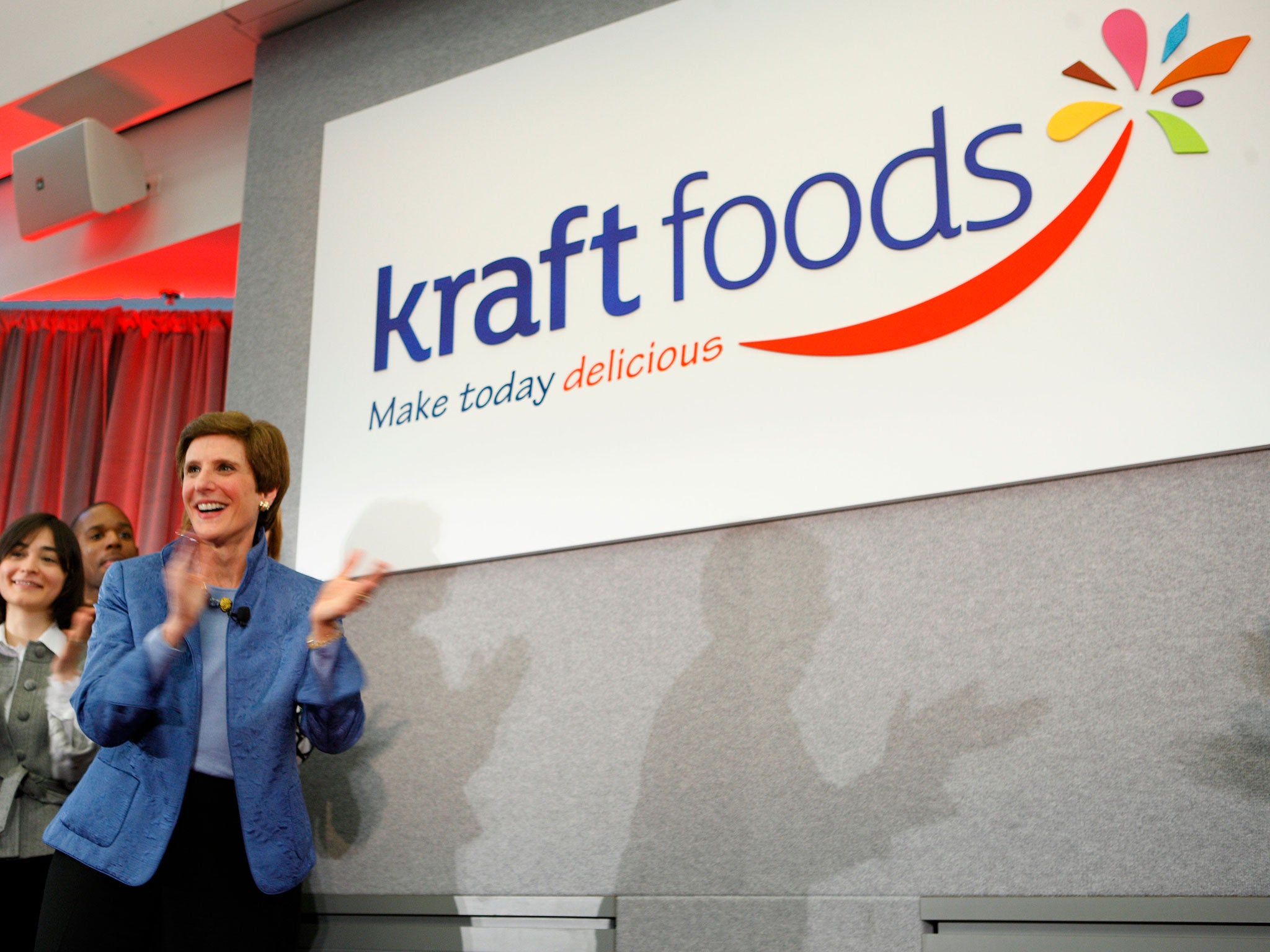Poor Irene Rosenfeld, villain of the Cadbury's story, now hounded by activist investors
Having a chief executive spending a quarter of her time dealing with the demands of two investors can’t be healthy

It’s hard to feel too sorry for professional misfortunes that befall Irene Rosenfeld. She is, after all, the American Kraft/Mondelez boss who made false promises about keeping UK jobs in the Cadbury takeover. Her refusal to be questioned by MPs following her closure of the Somerdale factory showed a disrespect only Mike Ashley has mustered since.
But the traducing she’d have been given by Westminster’s finest is nothing to the misery that Mondelez’s activist investors are now putting her through. Like demanding toddlers, but with Uzis, not Nerf guns, the US billionaires Nelson Peltz and Bill Ackman are taking up a quarter of her time – a quarter! – with their constant sniping and demands for reform.
It’s got so bad she’s having to hire another executive to actually run the business while she traipses off to suburban New York steakhouses for clandestine meetings with one activist or the other where they truculently demand mergers, boardroom seats and cost-cutting.
Much of what they demand – a merger with PepsiCo for one – she refuses during tortuous negotiations. Other ideas she promises to take on board, only then to be hounded when they’re not implemented fast enough. The management instability this engenders means she struggles to hire new executives into the business.
The activists argue they’ve pushed her to better performance. She says most of the changes they called for and which have happened were in the pipeline anyway.
While smaller firms like Alliance Trust and Electra form high-profile exceptions to the rule, we’re yet to have many shareholder activists in the UK’s biggest companies yet. Rolls-Royce is something of a one-off.
One reason for that is that there isn’t the same chasm here between many boards and their shareholders. The close relationships forged in the City mean fund managers tend to have a better, and more constructive, dialogue with the boards they invest in. Change may take a while – witness the lengthy demise of Peter Sands at Standard Chartered – but it comes eventually, and with the co-operation of the chairman.
It’s easy to say British businesses could do with more aggressive shareholders, to keep corporate executives on their toes and end such issues as excessive boardroom pay. But there’s little conclusive evidence that the Dow Jones outperforms the Footsie as a result. And as for executive pay, well, Ms Rosenfeld got $21m last year.
Common sense would suggest that having a chief executive spending 25 per cent of her time dealing with the demands of two investors can’t be healthy for any company. If big investors don’t like the way the boss runs the show, they should persuade other shareholders to join in and get them removed. Either that, or make a bid for the company. If neither of those ideas appeal, leave the leaders alone to lead.
Why property moguls look up to the skyscraper king
Talk to any London property developer of a certain age, and they’ll have a story about Harry Hyams. The Centre Point skyscraper tycoon who died on Friday, aged 87, left a mark on those who worked with him.
One successful sixtysomething developer tells me how, as a young agent 35 years ago, he was trying to find tenants for a Hyams building in the then rundown London district of Borough. Hyams was demanding 50 per cent more rent than anyone else in the area. The agent couldn’t get a bite, but Hyams wouldn’t drop his price.
Eventually Unilever came sniffing around, seeking a home for its Bird’s Eye HQ. The frozen-peas men visited four times but balked at the outrageous rent.
The agent begged Hyams again to reconsider, to be told: “If they’ve been around four times, they want it, and they’ll pay. The extra £5 a foot I’m asking is nothing to them: three salaries at most out of the 400 people they’ll be putting in that building. Offer three months rent free, to show how generous I am, but don’t drop the price.” Unilever paid up.
As my developer friend says: “I learnt a lot from Harry.”
Centre Point scandal gave rise to a silly law
Hyams is best remembered for his ruthless negotiating around the Centre Point skyscraper in London.
Controversy dogged the Brutalist tower long before the first pile was driven. Hyams wanted to get around the capital’s height restrictions to build up 35 floors. In return for a waiver, he offered the council top dollar for the land, plus a large chunk of the site back for public use as roads. This offer bent – many said broke – the rules curbing the “sale” of planning consents and resulted in the monolith that towers alone over the district’s Victorian red-brick to this day.
When it was built, he refused to let the building out floor-by-floor, demanding one tenant for the whole tower. His stubbornness left it empty for 16 years. No matter for Hyams – the property’s value snowballed anyway. It was a scandal that still hangs over the property world in the form of taxes punishing developers for having vacant office space.
The tax results in absurd behaviour. Developers demolish empty blocks to avoid the tax. Others delay final touches on building work to stop the vacancy clock starting. Some use empty buildings as storage depots, moving boxes of files from one to another every three months to satisfy the taxman that properties are occupied. Now Hyams is no more, let’s reform this silly law.
Join our commenting forum
Join thought-provoking conversations, follow other Independent readers and see their replies
Comments